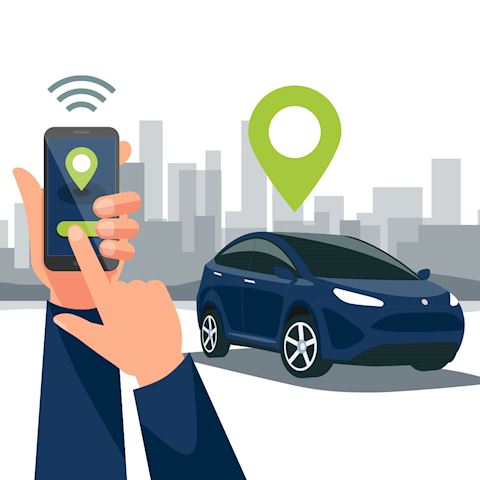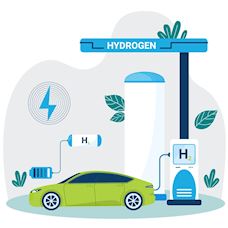What to look out for in the Automotive industry this year
Driven by shifting customer expectations, legislation and availability (accelerated by the pandemic) the automotive industry continues to rapidly develop and evolve. Everything from their manufacturing process and retail methods to the cars themselves are under the microscope, and this isn’t set to slow down anytime soon.
A few months in, it looks as though 2022 is set to be another challenging but exciting year for the automotive industry. Here are a few things to look out for in the year ahead.
- Sustainable materials in vehicle manufacturing
As sustainability continues to draw attention in all industries, the automotive industry in particular has been working toward creating new and innovative ways to help the climate. This year, we’ll be looking forward to seeing further eco-friendly progression from manufacturers. Lowering emissions or being electric aren’t the limit when taking into consideration how cars can become more eco-friendly.
The latest developments involve the use of more recycled materials. As time goes on it’ll be interesting to see not only how much this is adopted by the mainstream manufacturers but also how much this is accepted by the wider consumer market.
- Showroom of the future
The digitisation of the automotive industry doesn’t stop at the evolution of cars. One of the biggest trends we’re looking forward to this year will be the development and adoption of digital showrooms.
Thanks to augmented reality, dealerships can enhance their customers experience both in store and online. 360 viewings of the car are now possible from the comfort of your sofa enhanced with VR goggles. Customisation and other changes are made possible seeing them change as you are looking, nearly gamifying the experience. While we have no doubt that people will still want to test drive the car at a dealership before they buy, this hybrid approach to the car buying process, enables a wider number of prospects become better informed about their car before stepping foot in the physical showroom.
Similar growth is happening in finance first opportunities – to explore car finance options available to you digitally, before committing to conversations at a dealerships.
- Growth of hydrogen – potential zero emission through alternative fuels
Whilst we see a vast increase of battery electric or hybrid electric vehicles coming onto the road, this form of electric is not the only solution. Though electric is easier to deploy due to the charging infrastructure being mostly in place now, finally other alternative sustainable fuel options are starting to take off too. Hydrogen being one. Toyota’s hydrogen car, the Mirai has been available to the public for a few years. Two new manufacturers join the fray this year with Citroen and Peugeot releasing hydrogen vans.
These future fuels are highly exciting and have the potential to fill the gaps where battery electric won’t be able to keep up with demand or falls short on powering larger vehicles. All these new forms of power however, rely on government backing. Infrastructure to allow these fuels to be readily available is in its infancy, but we see more and more attention for them as momentum builds.
- Toyota and VW new range – bZ4x range and the ID range
Electric is no longer a small niche; it is big business. Where we saw Toyota turning heads in 1997 with their Prius hybrid, we now see more and more manufacturers not only offering electric vehicles, but expanding and enhancing their offerings.
With competition growing there are more options out there for consumers and the improvements in the technology are fast. We saw VW enter the electric market not too long ago with their new ID range and Toyota releasing the first of their new Beyond Zero range vehicle, the bZ4X. What it will mean for the future remains to be seen, with many concerns slowly being addressed this is a fast moving space.
- Self-driving cars and tech in cars
With all these advancements in the automotive industry and technology in cars becoming more and more complex to the point of self-driving cars, we see a mounting pressure on policy makers and insurance providers to update their policy and set out more modern guidance. Just like human error, machines can malfunction and get things wrong.
There has already been certain circumstances where self-driving cars have caused injuries to the public and the reason we’re including this as one of our trends is because there will be more tech-related incidents. Car manufacturers need to be cautious about their technology and its ability to malfunction or be hacked means they have to have certain processes in place to consistently check their software and be ready to deal with potential scenarios. Technology is making our cars seriously safer, but it has its limitations and planning for various scenarios we don’t want to find ourselves in, is therefore of paramount importance.
- The response to the semiconductor shortage
The semiconductor shortage is continuing to have a major impact on the global automotive industry. Starting from the effect its having on the amount of cars that can be produced, to the nearly year-long wait some buyers are having due to the ongoing uncertainty that began back in 2020.
The domino effect that this shortage is having on the industry is huge, with the impact on new car sales driving up used car prices due to increased demand. Experts have said that these issues are set to remain for at least another two years but it’ll be interesting to see how the industry further adapts to the problem at hand.
These are just the tip of the iceberg when covering automotive trends, and as the year progresses we’ll no doubt see more developments within the automotive field that’ll catch our attention. The industry as a whole always draws much interest and we can’t wait to see what more the year ahead will bring.
If you’re looking for Marketing and PR solutions for your Automotive business, contact Chris Wall to discuss how we can help reach your goals.







